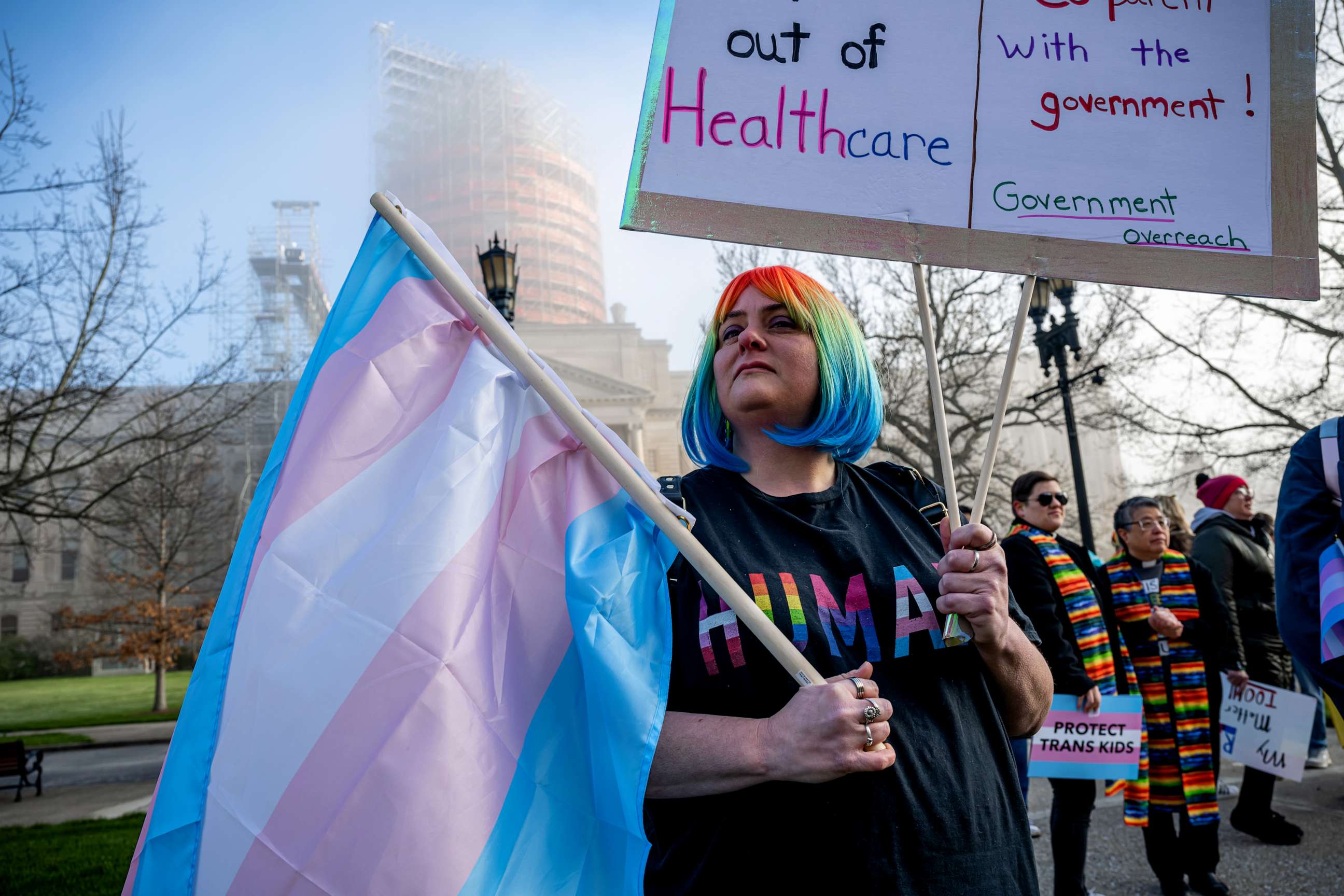Queer and trans youth plan march in the streets in 50 states amid anti-LGBTQ attacks
Several months after Samira, a 16-year-old Florida transgender girl, began taking gender-affirming hormones, the Florida medical board’s ban on transgender youth healthcare stopped her in her tracks.
“The day before the policy passed for real, I was dropped from my provider suddenly, without notice, and had to scramble to get a meeting to get that cleared up,” Samira told ABC News in an interview.
She says the nationwide wave of policy and legislative efforts to restrict gender-affirming care for trans people has not only taken a toll on her access to care, but also on her mental health.
“It's been rough, but having a purpose, having the ability to fight back against that, having the drive to do that, has been great,” Samira said.
She is one of hundreds of protesters expected in 50 states across the country to march in honor of the International Transgender Day of Visibility. The effort is being led by Queer Youth Assemble, a youth-led nonprofit aimed at bringing “joy and autonomy” to the queer and trans community.
Queer Youth Assemble is also collecting a growing list of signatures on a list of demands, which call for the banning of all forms of conversion therapy, furthering trans health research, and passing or codifying legal protections against discrimination for LGBTQ people.
Esmée Silverman, a co-founder of Queer Youth Assemble, said anti-transgender sentiment has brought her back to an “extremely dark place.”
“It's disheartening,” said 21-year-old Silverman, who goes by they/she pronouns, said. “It's not only impacted my perception on humanity – it's, quite frankly, brought me back to an extremely dark place that was my freshman year of high school where I was suffering, where I did not want to live.”
Silverman said their mental well-being improved after receiving gender-affirming care, which has been restricted for trans and nonbinary youth in at least 11 states across the country. The community has recently faced an onslaught of hate amid the targeted legislation by some conservative political figures -- with LGBTQ people being falsely called "pedophiles," "groomers," or being associated with violence.
“What got me out of that dark place was my ability to start hormones and the fact that it's getting taken away from so many youth across this country is going to change lives for the worse,” Silverman said.
Studies, including research in JAMA Surgery, have shown that gender-affirming care can be life-saving for transgender and nonbinary children and adolescents, promoting positive mental and physical health and well-being.
Transgender youth are more likely to experience anxiety, depressed mood, and suicidal ideation and attempts, often due to gender-related discrimination and gender dysphoria.

Silverman and Samira say they hope the march can uplift queer and trans youth by showing that the community is strong and united against the hate.
For Samira, having the support of her community and her family was vital to her journey exploring her gender.
“Just having a supporting family was, I think, a really big part of why I was able to be as secure as I was, but I feel like a lot of trans kids would be a lot happier, even without hormones, if they had families that were supportive as mine,” Samira said.
“Even if you're in the darkest of places … you will never be alone, you will have a community who loves and supports you regardless of where you go,” Silverman said. “Because one day, there will be a world where queer and trans youth are not forced to be activists or can pursue their dreams as filmmakers, chefs, web designers and artists, there will be a world where adults do not assume what queer and trans youth are, but rather ask queer and trans youth who they are.”




